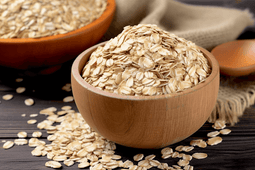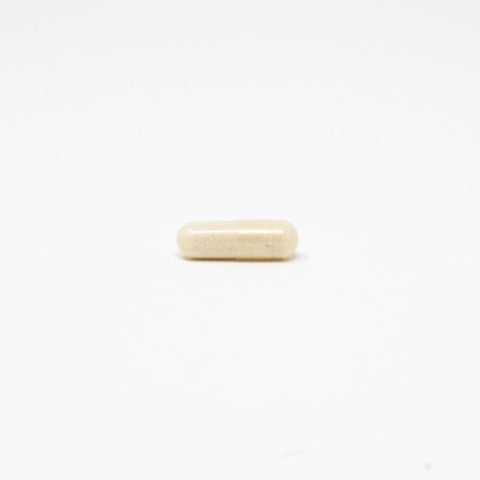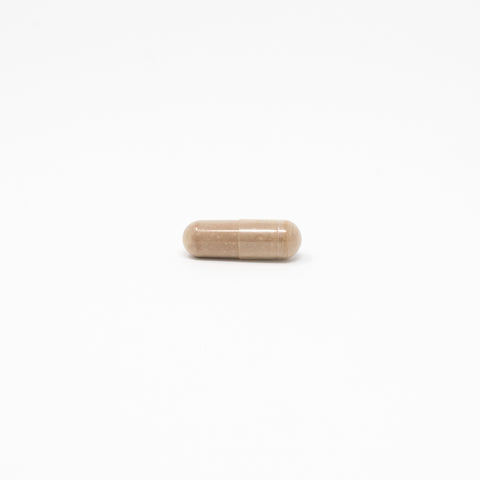What is Aspartic Acid? How Does It Benefit Our Bodies?
Last updated:

Aspartic acid is a non-essential amino acid that is crucial in making proteins and neurotransmitters and keeping our bodies in top shape. In this post, you'll discover how aspartic acid impacts our bodies, why it's important in our diet, and some of the best sources to find this amino whiz.
What is Aspartic Acid?
Aspartic Acid is a non-essential amino acid that is important for the body's protein synthesis and neurotransmitter production. aspartic acid plays a role in the urea cycle, which is responsible for removing ammonia from the body. Aspartic acid also helps produce two other amino acids – asparagine and arginine.
How does Aspartic Acid affect our bodies?
Now that we've established why Aspartic Acid is such a big deal let's chat about how it affects our bodies. As i mentioned earlier, Aspartic Acid has got its hands in many essential processes, from protein synthesis and neurotransmitter production to energy generation. Here's a closer look at some of its major contributions:
- Protein Synthesis: Aspartic Acid is a building block for proteins in our bodies.
- Neurotransmitter Production: Aspartic acid is involved in the production of two important neurotransmitters – glutamate and aspartate. These neurotransmitters are involved in various brain functions, including learning, memory, and synaptic plasticity.
- Energy Production: Aspartic acid participates in the citric acid cycle, also known as the Krebs cycle or the tricarboxylic acid (TCA) cycle. This cycle is crucial to our bodies' energy production process, converting nutrients into energy.
- Muscle Function: Aspartic acid helps maintain proper muscle function by synthesizing muscle proteins and assisting in energy production.
- Detoxification: Aspartic acid is an essential player in the urea cycle, which helps detoxify ammonia from our bodies. Including aspartic acid in your diet supports your bodies’ natural detoxification process.
Are there any side effects of too much aspartic acid?
As with many good things in life, balance is key, and aspartic acid is no exception. While it's essential for our bodies' optimal functioning, consuming excessive amounts of aspartic acid might lead to some side effects.
- Neurotoxicity: Excessive aspartic acid intake can lead to increased levels of aspartate and glutamate, which, in high concentrations, can be neurotoxic1. This means they can potentially harm nerve cells, so it's essential to keep our aspartic acid intake in check.
- Digestive Issues: Consuming too much aspartic acid, particularly in supplement form, can lead to gastrointestinal discomfort, including stomach pain, nausea, and diarrhea2. Nobody wants to deal with that, right? So, moderation is crucial.
What are the top sources of Aspartic Acid?
Ah, great question! To ensure you're getting enough aspartic acid in your diet, it's helpful to know which foods are rich in this amino acid. Here are some top sources of aspartic acid to add to your menu:
- Animal Proteins: Meat, poultry, and fish are all excellent sources of aspartic acid. Some examples include beef, chicken, turkey, and salmon.
- Dairy Products: Dairy products like milk, yogurt, and cheese provide a good amount of aspartic acid. So, go ahead and enjoy that Greek yogurt or cheese platter!
- Eggs: Eggs are rich in aspartic acid. They're not only a versatile ingredient but also a nutritional powerhouse!
- Plant-Based Proteins: For our vegetarian and vegan friends, don't worry! You can find aspartic acid in plant-based protein sources like soy products (tofu, tempeh, and edamame), legumes (beans, lentils, and chickpeas), and whole grains (quinoa, brown rice, and barley).
- Nuts and Seeds: Nuts and seeds, such as almonds, peanuts, sunflower seeds, and pumpkin seeds, also contain aspartic acid. They make a great snack or addition to salads, oatmeal, and more.
Aspartic Acid Content in Common Foods
The table below showcases the aspartic acid content in some popular food sources. It's designed to help you make informed choices when planning your meals, so you can easily incorporate this essential amino acid into your diet. Don't forget to mix and match to keep things interesting and delicious!
|
Food Source |
Aspartic acid (mg per 100g) |
|
Chicken Breast |
2217 |
|
Beef (Lean) |
2139 |
|
Salmon |
2070 |
|
Tofu |
1506 |
|
Lentils (Cooked) |
1078 |
|
Quinoa (Cooked) |
601 |
|
Almonds |
588 |
|
Greek Yogurt |
483 |
|
Sunflower Seeds |
435 |
|
Eggs |
383 |
Caption: Aspartic Acid content in common food sources (mg per 100g)
Source: USDA FoodData Central (FoodData Central)
Looking for Aspartic Acid Support in Your Supplement Routine?
If you want to support your aspartic acid levels, VitaRx is here to help you achieve your wellness goals. Although we don't have a specific aspartic acid supplement, many foods rich in this essential amino acid also contain other vital nutrients that our supplements can complement.
Our range of supplements, such as Vitamin B12, Magnesium, Zinc, and Multivitamins, can work hand-in-hand with the aspartic acid sources in your diet to support various aspects of your health – from brain function and energy production to muscle health and immune support. Plus, with VitaRx's personalized vitamin packs and monthly subscriptions, you'll have a convenient and tailored solution to ensure you're getting the nutrients you need
Ready to take the next step? Head over to VitaRx and take our brief health assessment to receive recommendations on vitamins and supplements that can complement your Aspartic Acid intake. Remember, you're just a few clicks away from unlocking your health's full potential!
Frequently asked questions (FAQ)
Can I get enough aspartic acid from a plant-based diet?
While animal-based sources such as chicken, beef, and salmon have high levels of aspartic acid, plant-based options like tofu, lentils, and quinoa are also rich in this amino acid. Incorporating a variety of these foods into your meals will help ensure adequate aspartic acid intake in a plant-based diet.
Is it necessary to supplement aspartic acid?
For most ppeople, consuming a balanced diet with a mix of protein-rich foods should provide sufficient Aspartic Acid. However, certain circumstances, such as a restrictive diet or specific health conditions, may warrant supplementation. It's essential to consult with a healthcare professional before starting any supplementation.
Are there any side effects of consuming too much aspartic acid?
While moderate consumption of aspartic acid is generally safe, excessive intake may lead to some side effects, such as headaches, diarrhea, or nervous system issues. It's crucial to maintain a balanced diet and not over consume any particular nutrient, including aspartic acid.
Conclusion
We've dived deep into the world of aspartic acid and discovered how it plays a key role in our bodies’ functions. As you've seen, incorporating aspartic acid into your diet is a piece of cake - or should we say, a piece of steak? Remember, balance is vital, so don't be afraid to mix up your protein sources to keep things fresh and delicious. Cheers to a healthy, aspartic acid-boosted lifestyle!
Key Takeaways
This article covered the non-essential amino acid aspartic acid and its importance in our bodies. Here are some key takeaways:
- Aspartic acid plays a crucial role in energy production, protein synthesis, and neurotransmitter function.
- Animal-based sources such as chicken, beef, and salmon are rich in aspartic acid, as well as plant-based options like tofu, lentils, and quinoa.
- Most individuals can obtain sufficient aspartic acid from a balanced diet, but supplementation may be necessary in specific cases.
- Consult a healthcare professional before starting any supplementation.
- Excessive aspartic acid intake may lead to side effects, so moderation is essential.





